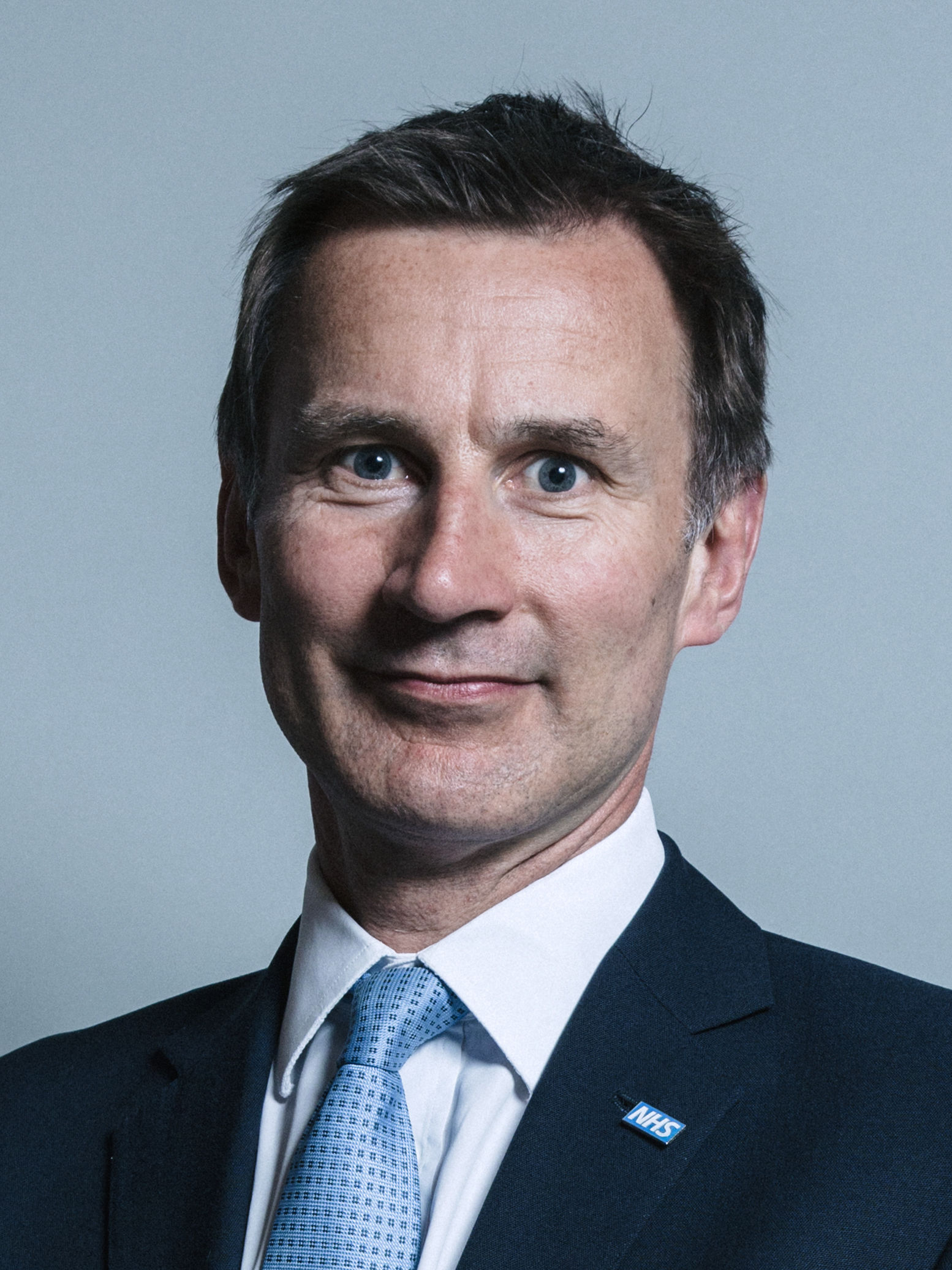HM Treasury
HM Treasury is the government’s economic and finance ministry, maintaining control over public spending, setting the direction of the UK’s economic policy and working to achieve strong and sustainable economic growth.
Shadow Ministers / Spokeperson
Democratic Unionist Party
Sammy Wilson (DUP - East Antrim)Shadow DUP Spokesperson (Treasury)
Liberal Democrat
Baroness Kramer (LD - Life peer)Liberal Democrat Lords Spokesperson (Treasury and Economy)
Plaid Cymru
Ben Lake (PC - Ceredigion)Shadow PC Spokesperson (Treasury)
Labour
Rachel Reeves (Lab - Leeds West)Shadow Chancellor of the Exchequer
Liberal Democrat
Sarah Olney (LD - Richmond Park)Liberal Democrat Spokesperson (Treasury)
Labour
Baroness Chapman of Darlington (Lab - Life peer)Shadow Spokesperson (Treasury)
Lord Livermore (Lab - Life peer)
Shadow Spokesperson (Treasury)
Junior Shadow Ministers / Deputy Spokesperson
Labour
James Murray (Lab - Ealing North)Shadow Financial Secretary (Treasury)
Tulip Siddiq (Lab - Hampstead and Kilburn)
Shadow Minister (Treasury)
Darren Jones (Lab - Bristol North West)
Shadow Chief Secretary to the Treasury
Ministers of State
Nigel Huddleston (Con - Mid Worcestershire)Financial Secretary (HM Treasury)
Laura Trott (Con - Sevenoaks)
Chief Secretary to the Treasury
Parliamentary Under-Secretaries of State
Gareth Davies (Con - Grantham and Stamford)Exchequer Secretary (HM Treasury)
Bim Afolami (Con - Hitchin and Harpenden)
Economic Secretary (HM Treasury)
Baroness Vere of Norbiton (Con - Life peer)
Parliamentary Secretary (HM Treasury)
14:30
Oral questions - Main Chamber
7 May 2024, 2:30 p.m.
HM Treasury (including Topical Questions)
Save to Calendar
View calendar
11:30
Oral questions - Main Chamber
18 Jun 2024, 11:30 a.m.
HM Treasury (including Topical Questions)
Save to Calendar
View calendar
11:30
Oral questions - Main Chamber
23 Jul 2024, 11:30 a.m.
HM Treasury (including Topical Questions)
Save to Calendar
View calendar
14:10
This inquiry will examine quantitative tightening, including its impact on the economy and its fiscal costs. It will also investigate …
To ask His Majesty's Government, following recent remarks from the deputy governor of the Bank of England, Dave Ramsden, that …
These Regulations extend the applicable sunset date for special tax sites.
A Bill to authorise the use of resources for the years ending with 31 March 2023, 31 March 2024 and …
16:09
News and Communications
HM Treasury Commons Appearances
Oral Answers to Questions is a regularly scheduled appearance where the Secretary of State and junior minister will answer at the Dispatch Box questions from backbench MPs
Other Commons Chamber appearances can be:- Urgent Questions where the Speaker has selected a question to which a Minister must reply that day
- Adjornment Debates a 30 minute debate attended by a Minister that concludes the day in Parliament.
- Oral Statements informing the Commons of a significant development, where backbench MP's can then question the Minister making the statement.
Westminster Hall debates are performed in response to backbench MPs or e-petitions asking for a Minister to address a detailed issue
Written Statements are made when a current event is not sufficiently significant to require an Oral Statement, but the House is required to be informed.
Bills currently before Parliament
A Bill to make provision in connection with finance.
Wednesday 8th May 2024
Acts of Parliament created in the 2019 Parliament
A Bill to authorise the use of resources for the years ending with 31 March 2023, 31 March 2024 and 31 March 2025; to authorise the issue of sums out of the Consolidated Fund for those years; and to appropriate the supply authorised by this Act for the years ending with 31 March 2023 and 31 March 2024.
This Bill received Royal Assent on 20th March 2024 and was enacted into law.
A Bill to make provision for and in connection with reducing the main rates of primary Class 1 national insurance contributions and Class 4 national insurance contributions.
This Bill received Royal Assent on 20th March 2024 and was enacted into law.
A Bill to make provision in connection with finance.
This Bill received Royal Assent on 22nd February 2024 and was enacted into law.
A Bill to make provision for and in connection with reducing the main rates of primary Class 1 national insurance contributions and Class 4 national insurance contributions, and removing the requirement to pay Class 2 national insurance contributions.
This Bill received Royal Assent on 13th December 2023 and was enacted into law.
A Bill to Authorise the use of resources for the year ending with 31 March 2024; to authorise both the issue of sums out of the Consolidated Fund and the application of income for that year; and to appropriate the supply authorised for that year by this Act and by the Supply and Appropriation (Anticipation and Adjustments) Act 2023.
This Bill received Royal Assent on 11th July 2023 and was enacted into law.
A Bill to make provision in connection with finance.
This Bill received Royal Assent on 11th July 2023 and was enacted into law.
A Bill To make provision about the regulation of financial services and markets; and for connected purposes.
This Bill received Royal Assent on 29th June 2023 and was enacted into law.
A Bill to make provision about the UK Infrastructure Bank
This Bill received Royal Assent on 23rd March 2023 and was enacted into law.
A Bill to Authorise the use of resources for the years ending with 31 March 2022, 31 March 2023 and 31 March 2024; to authorise the issue of sums out of the Consolidated Fund for those years; and to appropriate the supply authorised by this Act for the years ending with 31 March 2022 and 31 March 2023.
This Bill received Royal Assent on 23rd March 2023 and was enacted into law.
A Bill to reduce for a temporary period the amount of stamp duty land tax chargeable on the acquisition of residential property.
This Bill received Royal Assent on 8th February 2023 and was enacted into law.
A Bill to grant certain duties, to alter other duties, and to amend the law relating to the national debt and the public revenue, and to make further provision in connection with finance.
This Bill received Royal Assent on 10th January 2023 and was enacted into law.
A Bill to authorise the use of resources for the year ending with 31 March 2023; to authorise the issue of sums out of the Consolidated Fund for that year; and to appropriate the supply authorised by this Act for that year.
This Bill received Royal Assent on 25th October 2022 and was enacted into law.
A Bill to make provision for and in connection with the repeal of the Health and Social Care Levy Act 2021.
This Bill received Royal Assent on 25th October 2022 and was enacted into law.
A Bill to authorise the use of resources for the year ending with 31 March 2023; to authorise both the issue of sums out of the Consolidated Fund and the application of income for that year; and to appropriate the supply authorised for that year by this Act and by the Supply and Appropriation (Anticipation and Adjustments) Act 2022
This Bill received Royal Assent on 14th July 2022 and was enacted into law.
A Bill to make provision for, and in connection with, imposing a charge on ring fence profits of companies.
This Bill received Royal Assent on 14th July 2022 and was enacted into law.
A Bill to make provision for and in connection with increasing the thresholds at which primary Class 1 contributions, Class 2 contributions and Class 4 contributions become payable.
This Bill received Royal Assent on 31st March 2022 and was enacted into law.
A Bill to make provision in relation to national insurance contributions.
This Bill received Royal Assent on 14th March 2022 and was enacted into law.
A Bill To Authorise the use of resources for the years ending with 31 March 2021, 31 March 2022 and 31 March 2023; to authorise the issue of sums out of the Consolidated Fund for those years; and to appropriate the supply authorised by this Act for the years ending with 31 March 2021 and 31 March 2022.
This Bill received Royal Assent on 14th March 2022 and was enacted into law.
A Bill to make provision about public service pension schemes, including retrospective provision to rectify unlawful discrimination in the way in which existing schemes were restricted under the Public Service Pensions Act 2013 and corresponding Northern Ireland legislation; to make provision for the establishment of new public pension schemes for members of occupational pension schemes of bodies that were brought into public ownership under the Banking (Special Provisions) Act 2008; to make provision about the remuneration and the date of retirement of holders of certain judicial offices; to make provision about judicial service after retirement; and for connected purposes
This Bill received Royal Assent on 10th March 2022 and was enacted into law.
A Bill to grant certain duties, to alter other duties, and to amend the law relating to the national debt and the public revenue, and to make further provision in connection with finance.
This Bill received Royal Assent on 24th February 2022 and was enacted into law.
A Bill to make provision about the meaning of references to Article 23A benchmarks in contracts and other arrangements; and to make provision about the liability of administrators of Article 23A benchmarks
This Bill received Royal Assent on 15th December 2021 and was enacted into law.
A Bill to make provision imposing a tax (to be known as the health and social care levy), the proceeds of which are payable to the Secretary of State towards the cost of health care and social care, on amounts in respect of which national insurance contributions are, or would be if no restriction by reference to pensionable age were applicable, payable; and for connected purposes.
This Bill received Royal Assent on 20th October 2021 and was enacted into law.
A Bill to provide for the payment out of money provided by Parliament of expenditure incurred by the Treasury for, or in connection with, the payment of compensation to customers of London Capital & Finance plc; provide for the making of loans to the Board of the Pension Protection Fund for the purposes of its fraud compensation functions; and for connected purposes.
This Bill received Royal Assent on 20th October 2021 and was enacted into law.
A Bill to authorise the use of resources for the year ending with 31 March 2022; to authorise both the issue of sums out of the Consolidated Fund and the application of income for that year; and to appropriate the supply authorised for that year by this Act and by the Supply and Appropriation (Anticipation and Adjustments) Act 2021.
This Bill received Royal Assent on 19th July 2021 and was enacted into law.
A Bill to grant certain duties, to alter other duties, and to amend the law relating to the national debt and the public revenue, and to make further provision in connection with finance.
This Bill received Royal Assent on 10th June 2021 and was enacted into law.
A Bill to make provision about financial services and markets; to make provision about debt respite schemes; to make provision about Help-to-Save accounts; and for connected purposes.
This Bill received Royal Assent on 29th April 2021 and was enacted into law.
A Bill to authorise the use of resources for the years ending with 31 March 2019, 31 March 2020, 31 March 2021 and 31 March 2022; to authorise the issue of sums out of the Consolidated Fund for the years ending 31 March 2020, 31 March 2021 and 31 March 2022; and to appropriate the supply authorised by this Act for the years ending with 31 March 2019, 31 March 2020 and 31 March 2021.
This Bill received Royal Assent on 15th March 2021 and was enacted into law.
A Bill to make provision increasing the maximum capital of the Contingencies Fund for a temporary period.
This Bill received Royal Assent on 15th March 2021 and was enacted into law.
A Bill to make provision for payments to or in respect of Ministers and holders of Opposition offices on maternity leave.
This Bill received Royal Assent on 1st March 2021 and was enacted into law.
A Bill to make provision (including the imposition and regulation of new duties of customs) in connection with goods in Northern Ireland and their movement into or out of Northern Ireland; to make provision amending certain enactments relating to value added tax, excise duty or insurance premium tax; to make provision in connection with the recovery of unlawful state aid in relation to controlled foreign companies; and for connected purposes.
This Bill received Royal Assent on 17th December 2020 and was enacted into law.
This Bill received Royal Assent on 22nd July 2020 and was enacted into law.
A Bill to make provision to reduce for a temporary period the amount of stamp duty land tax chargeable on the acquisition of residential property.
This Bill received Royal Assent on 22nd July 2020 and was enacted into law.
A Bill to grant certain duties, to alter other duties, and to amend the law relating to the national debt and the public revenue, and to make further provision in connection with finance.
This Bill received Royal Assent on 22nd July 2020 and was enacted into law.
A Bill to make provision increasing the maximum capital of the Contingencies Fund for a temporary period.
This Bill received Royal Assent on 25th March 2020 and was enacted into law.
A Bill to authorise the use of resources for the years ending with 31 March 2020 and 31 March 2021; to authorise the issue of sums out of the Consolidated Fund for those years; and to appropriate the supply authorised by this Act for the year ending with 31 March 2020.
This Bill received Royal Assent on 16th March 2020 and was enacted into law.
HM Treasury - Secondary Legislation
Petitions
e-Petitions are administered by Parliament and allow members of the public to express support for a particular issue.
If an e-petition reaches 10,000 signatures the Government will issue a written response.
If an e-petition reaches 100,000 signatures the petition becomes eligible for a Parliamentary debate (usually Monday 4.30pm in Westminster Hall).
(1,743 in the last 7 days)
(1,245 in the last 7 days)
(373 in the last 7 days)
(61 in the last 7 days)
(43 in the last 7 days)
(1,743 in the last 7 days)
(1,245 in the last 7 days)
(61 in the last 7 days)
(373 in the last 7 days)
(16 in the last 7 days)
Petition Closed
Extend the Stamp Duty Holiday for an additional 6 months after 31st March 2021
Gov Responded - 10 Dec 2020closed 3 years, 1 month ago
Extending the Stamp Duty Holiday for an additional 6 months will assist many buyers who are looking to move to a property that they will not be able to afford otherwise.
This will help to stabilise the housing market
Petition Closed
Give all key workers a 100% tax and Nat. Ins. holiday through COVID-19 crisis
Gov Responded - 27 Apr 2020 Debated on - 14 Dec 2020closed 3 years, 7 months ago
The government is helping private firms to protect jobs by paying up to 80% of staff wages through this crisis. If it can do this why can it not help key workers who will be putting themselves/their families at risk and working extra hard under extremely challenging and unprecedented circumstances.
Petition Closed
Introduce charges on carbon emissions to tackle climate crisis and air pollution
Gov Responded - 30 Mar 2021 Debated on - 1 Nov 2021closed 2 years, 8 months ago
Air pollution kills 64,000 people in the UK every year, yet the Government provides annual fossil fuel subsidies of £10.5 billion, according to the European Commission. To meet UK climate targets, the Government must end this practice and introduce charges on producers of greenhouse gas emissions.
Departmental Select Committee
Treasury Committee
Commons Select Committees are a formally established cross-party group of backbench MPs tasked with holding a Government department to account.
At any time there will be number of ongoing investigations into the work of the Department, or issues which fall within the oversight of the Department. Witnesses can be summoned from within the Government and outside to assist in these inquiries.
Select Committee findings are reported to the Commons, printed, and published on the Parliament website. The government then usually has 60 days to reply to the committee's recommendations.
11 Members of the Treasury Committee

Treasury Committee Chair since 9th November 2022

Treasury Committee Member since 2nd March 2020

Treasury Committee Member since 11th May 2020

Treasury Committee Member since 21st November 2022

Treasury Committee Member since 21st November 2022

Treasury Committee Member since 21st November 2022

Treasury Committee Member since 12th September 2023

Treasury Committee Member since 20th November 2023

Treasury Committee Member since 11th December 2023

Treasury Committee Member since 11th December 2023

Treasury Committee Member since 11th March 2024
Treasury Committee: 14 Current Inquiries
Treasury Committee: Previous Inquiries
50 most recent Written Questions
(View all written questions)The government is continuing to pursue an ambitious policy agenda to increase sustainable economic growth and productivity across the economy. This includes making full expensing permanent, announcing measures to boost labour supply, backing the UK’s priority growth sectors, and addressing long-term barriers to investment through planning and grid connection reforms.
The IMF forecasts that the UK will have the third fastest cumulative growth in the G7 over the 2024-2029 period and the OBR expects that policies announced in the previous three fiscal events will increase the size of the economy by 0.7% by 2028-29.
Parliamentary Secretary (HM Treasury)
The government is continuing to pursue an ambitious policy agenda to increase sustainable economic growth and productivity across the economy. This includes making full expensing permanent, announcing measures to boost labour supply, backing the UK’s priority growth sectors, and addressing long-term barriers to investment through planning and grid connection reforms.
The IMF forecasts that the UK will have the third fastest cumulative growth in the G7 over the 2024-2029 period and the OBR expects that policies announced in the previous three fiscal events will increase the size of the economy by 0.7% by 2028-29.
Parliamentary Secretary (HM Treasury)
We have made a commitment to steadily increase defence spending, reaching 2.5% of GDP in 2030. We have also set out how we are fully funding this increase in defence spending. We will set departmental budgets in the normal way at the next spending review.
Chief Secretary to the Treasury
We have committed to increase government R&D spending by £2 billion, from £20 billion in 2024-25 to £22 billion in the next Parliament.
Chief Secretary to the Treasury
A response has been issued to the Chair of the Northern Ireland Assembly Finance Committee’s letter on the Northern Ireland Executive’s restoration financial package.
Chief Secretary to the Treasury
HM Revenue & Customs (HMRC) is responsible for the collection and publication of data on imports and exports of goods to and from the UK. HMRC releases this information monthly, as a National Statistic called the Overseas Trade in Goods Statistics (OTS), which is available via their dedicated website (www.uktradeinfo.com). From this website, it is possible to build your own data tables based upon bespoke search criteria.
Classification codes (according to the Harmonised System) are available to assist you in accessing published trade statistics data in the UK Global Tariff. Goods moving to and from the UK are identified by an eight-digit commodity code. These are publicly available from the UK Trade Tariff at https://www.gov.uk/trade-tariff.
The data on these exports and for other tobacco products can be obtained from www.uktradeinfo.com.
If you need help or support in constructing a table from the data on uktradeinfo, please contact uktradeinfo@hmrc.gov.uk.
Financial Secretary (HM Treasury)
HMRC spend on consultancy is reported in HMRC Annual Report and Accounts published on GOV.UK. Consultancy spend for the last 5 five years can be accessed from these links:
HMRC annual report and accounts: 2018 to 2019 - GOV.UK (www.gov.uk) HMRC Annual Report and Accounts 2018 to 2019 (Print). Page 128.
HMRC annual report and accounts: 2019 to 2020 - GOV.UK (www.gov.uk) HMRC Annual Report and Accounts 2019 to 2020 (Print). Page 140.
HMRC annual report and accounts: 2020 to 2021 - GOV.UK (www.gov.uk) HMRC Annual Report and Accounts 2020 to 2021 (Print). Page 171.
HMRC annual report and accounts: 2021 to 2022 - GOV.UK (www.gov.uk) HMRC Annual Report and Accounts 2021 to 2022 (Print). Page 139.
HMRC annual report and accounts: 2022 to 2023 - GOV.UK (www.gov.uk) HMRC Annual Report and Accounts 2018 to 2019 (Print). Page 140.
Financial Secretary (HM Treasury)
There is a wide variety of data and statistics about the mortgage market in the UK available from the Bank of England (https://www.bankofengland.co.uk/statistics), the Financial Conduct Authority (https://www.fca.org.uk/data) and UK Finance (https://www.ukfinance.org.uk/data-and-research/data).
Economic Secretary (HM Treasury)
Treasury Ministers and officials have regular meetings with a wide variety of organisations in the public and private sectors, including financial services firms, on an ongoing basis.
The Government does not prescribe the terms, conditions or price that insurance companies set when offering insurance. Insurers make commercial decisions about the pricing of insurance following their assessment of the relevant risks. The Government does not intervene in these decisions as this could damage competition in the market.
The Financial Conduct Authority (FCA) is the independent regulator responsible for supervising the insurance industry. The FCA requires firms to ensure their products offer fair value (i.e. if the price a consumer pays for a product or service is reasonable compared to the overall benefits they can expect to receive). The FCA has been clear that it will be monitoring firms to ensure they are providing products that are fair value, and, where necessary, it will take action.
Economic Secretary (HM Treasury)
The government is determined that everyone who is entitled to the NMW receives it.
HM Revenue and Customs enforces the National Minimum Wage (NMW) and National Living Wage (NLW) in line with the law and policy set out by the Department for Business and Trade. This involves a wide-ranging programme of education and risk led enforcement activity across the whole of UK labour market including social care
HMRC consider all of the risks that might be relevant, when carrying out a review and record whether an employer is compliant or non-compliant.
HMRC does not hold information on how many times HMRC has taken enforcement action against employers for the underpayment of national living wage for domiciliary care workers as a result of unpaid travel time.
Financial Secretary (HM Treasury)
For Tax-Free Childcare, the £2 Government top-up for every £8 parents pay in, and the £2,000 cap on Government support which can be claimed per year and per child, were set at these levels because the Government believes they strike the right balance between helping parents with their childcare costs, and managing the public finances in a responsible way.
The Government keeps all aspects of childcare policy under review.
Chief Secretary to the Treasury
Pursuant to the answer provided on 24 April 2024 to Question 22821, HM Revenue and Customs is responsible for enforcing and investigating export controls on strategic goods and sanctions and investigating potential breaches of those controls.
HM Revenue and Customs’ enforcement outcomes will be published in the UK Strategic Export Controls Annual Report 2023. This will be available on the gov.uk website. This will include collated Compound Settlement details and Prosecutions for this period.
HM Revenue and Customs does not comment on operational enforcement matters pertaining to specific import or export scenarios.
Financial Secretary (HM Treasury)
As committed to in the financial package for the restored Northern Ireland Executive, the UK Government will agree a Fiscal Framework with the Northern Ireland Executive which will outline Northern Ireland’s long-term funding arrangements.
Since the restoration of the Northern Ireland Executive, constructive engagement on the Executive’s Fiscal Framework has taken place between HM Treasury and the Northern Ireland Department of Finance officials, and between myself and the Northern Ireland Finance Minister. My officials and I will continue this regular engagement to progress these negotiations at pace.
Chief Secretary to the Treasury
As committed to in the financial package for the restored Northern Ireland Executive, the UK Government will agree a Fiscal Framework with the Northern Ireland Executive which will outline Northern Ireland’s long-term funding arrangements.
Since the restoration of the Northern Ireland Executive, constructive engagement on the Executive’s Fiscal Framework has taken place between HM Treasury and the Northern Ireland Department of Finance officials, and between myself and the Northern Ireland Finance Minister. My officials and I will continue this regular engagement to progress these negotiations at pace.
Chief Secretary to the Treasury
HM Revenue and Customs enforces the National Minimum Wage (NMW) and National Living Wage (NLW) in line with the law and policy set out by the Department for Business and Trade (DBT). This involves a wide-ranging programme of education and risk led enforcement activity across the whole of the UK labour market and the associated risks including travel time. All businesses, irrespective of their size or business sector are responsible for paying the correct NMW rates to their staff.
Financial Secretary (HM Treasury)
The government notes that while there have been reports of a decline in venture capital (VC) investment in UK start-ups, this has been broad based and global in nature. We also note that because of the nature of private markets, there is a lag in data reporting for VC deals, meaning that final data on investments made in Q1 2024 will not be available until later in the year.
The BBB’s Small Business Finance Monitor 2024, which covers data up to the end of Q3 2023, found that there has been a “slowdown in activity that has occurred in the market since Q2 2022” and that the market decline over the past 18 months is not unique to the UK and can be seen across other global regions.
However, we also note that VC funding in the UK has reduced from record levels in 2021/2022, and that despite this slowdown, early stage/seed funding has remained robust, indicating that there is a pipeline of future investment opportunities still being created.
The government recognises that VC funding is an important source of finance for innovative companies and is proud of the fact that the UK has the third largest VC market in the world, behind only the US and China. The government is backing British business by tackling barriers to investment, cutting taxes and rewarding work, and by supporting the priority growth sectors, including digital technology, which are helping to turn the UK into the world’s next Silicon Valley.
This includes making over £3.5 billion of public investment in the AI ecosystem since 2014, extending the sunset clause for the Enterprise Investment Scheme and the Venture Capital Trust scheme to 6 April 2035, making changes to simplify and improve R&D tax reliefs, extending the British Business Bank’s Future Fund: Breakthrough investment programme, and implementing the measures the Chancellor announced at last year’s Mansion House speech to reform the pensions market to unlock investment into high growth sectors and generate increased returns for savers.
Parliamentary Secretary (HM Treasury)
Exchequer Secretary (HM Treasury)
Advisory Fuel Rates apply when an employer reimburses an employee for business travel in a company car, or when an employee reimburses an employer for the cost of fuel used for private travel. Rates vary by engine size and fuel type and are reviewed quarterly. There are no current plans to introduce a specific advisory rate for hybrid vehicles.
The Advisory Fuel Rates are not mandatory. Employers and employees can instead agree to reimburse different amounts, subject to certain tax conditions.
Exchequer Secretary (HM Treasury)
The number of people who paid Class 4 National Insurance Contributions is approximately 2.69 million in 2021 to 2022. The estimate accounts for the whole of the UK and is based on the 2021 to 2022 Survey of Personal Incomes (SPI), which is the latest outturn year available.
Financial Secretary (HM Treasury)
NS&I raises cost effective finance for government from the retail savings market. It does this through offering savings products to consumers, including Premium Bonds. Funds raised by NS&I from these products, including Premium Bonds, flow to the National Loans Fund (NLF). The NLF is the government’s main borrowing and lending account, and to this end, it undertakes borrowing (primarily by issuing gilts via the Debt Management Office) and uses proceeds and other central government surplus balances, including funds from NS&I’s Premium Bonds, to manage its cash needs day-to-day.
The Exchequer’s cash needs are managed on an aggregate basis, meaning funds raised from Premium Bonds are not held in a separate account and do not receive a separate rate of return (which in any case is determined by the market as the government is ultimately a price taker). Therefore, there is not a single rate of return on NS&I proceeds and it would not be possible to provide an estimate of returns from retaining the proceeds of Premium Bonds.
When a customer divests their holdings of Premium Bonds, these repayments are also funded via the NLF’s activities and are typically processed within three working days. However, in exceptional circumstances, such as Bank Holidays, this may take longer. This process allows HM Treasury to manage Exchequer cashflows in a cost effective manner.
Parliamentary Secretary (HM Treasury)
HMRC’s register of Trust or Company Service Providers (TCSPs) does not show any TSCPs with that registered office address; and none of the TCSPs supervised by HMRC lists the address as business premises. HMRC supervises only those TCSPs which are not supervised by a professional body supervisor or the Financial Conduct Authority
Financial Secretary (HM Treasury)
The breakdown of National Insurance contributions (NICs) by class for Great Britain and Northern Ireland is provided by HM Revenue and Customs (HMRC) in “National Insurance Fund (NIF) Accounts”, available here (in the Notes to the Account):
https://www.gov.uk/government/publications/national-insurance-fund-accounts
The figures for tax year 2023 to 2024 will be published later this year. Note that the breakdown in the NIF accounts does not include the NHS allocation, paid over by HMRC to the NHS, though information on this allocation is included in the NIF Accounts.
Information on NICs can also be found in the “HMRC tax receipts and National Insurance contributions for the UK” statistical bulletin, available here:
HMRC tax receipts and National Insurance contributions for the UK - GOV.UK (www.gov.uk)
These include figures for NICs received through Self Assessment (including both Class 2 and Class 4). Receipts for 2023-24 are now available, but are provisional and will be updated later this year.
Financial Secretary (HM Treasury)
An estimate of the annual offshore tax gap for individuals in Self Assessment will be published alongside HMRC’s measuring tax gaps statistics ‘Measuring tax gaps 2024 edition’ scheduled for 20 June 2024.
Financial Secretary (HM Treasury)
The Treasury’s consultation on reforming the UK’s Anti-Money Laundering and Counter-Terrorism Financing supervisory regime closed in September 2023. The Department is continuing to analyse responses with the intention to announce a decision in due course as part of our commitment to reform the current supervision system and reduce economic crime.
Economic Secretary (HM Treasury)
As with all aspects of the tax system, the Government keeps the Personal Allowance under review and any decisions on future changes will be taken by the Chancellor in the context of the wider public finances.
Financial Secretary (HM Treasury)
The path to lower interest rates is through low inflation, and the Government is fully committed to supporting the Bank of England get inflation back down to the 2% target, including by keeping borrowing under control.
While the pricing of mortgages is ultimately a commercial decision for lenders in which the Government does not intervene, our plan is working, and the average offered mortgage rates on 2-year and 5-year fixed rates are lower compared to their peak in Summer 2023.
The Government’s Mortgage Charter - in addition to the significant safeguards already in place - is providing support to vulnerable households; and mortgage arrears and repossessions remain low.
Economic Secretary (HM Treasury)
The path to lower interest rates is through low inflation, and the Government is fully committed to supporting the Bank of England get inflation back down to the 2% target, including by keeping borrowing under control.
While the pricing of mortgages is ultimately a commercial decision for lenders in which the Government does not intervene, our plan is working, and the average offered mortgage rates on 2-year and 5-year fixed rates are lower compared to their peak in Summer 2023.
The Government’s Mortgage Charter - in addition to the significant safeguards already in place - is providing support to vulnerable households; and mortgage arrears and repossessions remain low.
Economic Secretary (HM Treasury)
Monetary policy is the responsibility of the independent Monetary Policy Committee of the Bank of England. This includes decisions on the Bank Rate.
The Treasury meet with the Bank of England regularly to discuss their assessment of the economy and financial services. This includes regular meetings between the Chancellor and the Governor of the Bank of England.
Economic Secretary (HM Treasury)
This data is published in Table 2.1 Number of individual Income Tax payers in the Income Tax statistics and distributions publication.
Financial Secretary (HM Treasury)
The requested information on Value Added Tax (VAT) registrations by deprivation decile is not available. HMRC does not publish any VAT statistics containing geographic breakdowns. This is because VAT registrations can have both single and multiple sites, and therefore such breakdowns would be of limited value.
Financial Secretary (HM Treasury)
Parliamentary Secretary (HM Treasury)
The government recognises the pressure that businesses have been under since the pandemic and that is why the government froze the business rates multiplier for three consecutive years from April 2021 until April 2024 at a cost of £14.5 billion.
To make sure that the most vulnerable businesses continue to be supported, the government announced a further freeze to the small business multiplier at Autumn Statement for 2024-25, which will protect over a million ratepayers from a multiplier increase. This means bills will be 6.6 per cent lower than without the freeze. In addition to this support, some nurseries will already be in receipt of business rates relief where they have a ‘charitable purpose’, such as those part of academy chains.
Financial Secretary (HM Treasury)
The Government takes the issue of fraud very seriously, and published a comprehensive Fraud Strategy in May last year. Through this the Government will work: with industry to remove the vulnerabilities that fraudsters exploit; with intelligence agencies to shut down fraudulent infrastructure; with law enforcement to identify and bring the most harmful offenders to justice; and with all partners to ensure that the public have the advice and support they need
Further, the Financial Conduct Authority (FCA) commenced enforcement of the cryptoassets financial promotion regime in October last year, requiring such promotions to be fair, clear and not misleading. This is aimed at improving consumers’ understanding of the risks and benefits associated with cryptoasset purchases and ensuring that cryptoasset promotions are held to the same standards as similar risk financial services products. In the next phase of its work, the Government is creating a comprehensive financial services regulatory regime for cryptoassets in the UK.
Economic Secretary (HM Treasury)
The Equitable Life Payment Scheme has been fully wound down and closed since 2016 and there are no plans to reopen any previous decisions relating to the Payment Scheme or review the £1.5 billion funding allocation previously made to it. Further guidance on the status of the Payment Scheme after closure is available at: https://www.gov.uk/guidance/equitable-life-payment-scheme#closure-of-the-scheme.
Economic Secretary (HM Treasury)
The government is extending the sunset clause for the Enterprise Investment Scheme (EIS) and the Venture Capital Trust (VCT) scheme to 2035.
The UK-EU Trade and Cooperation Agreement is now the primary framework governing subsidy control between the UK and EU. As such, EU State aid rules no longer apply to the UK, save for the limited circumstances covered by the Windsor Framework.
For the EIS and VCT schemes, the government is engaging with the EU, under the Windsor Framework, due to Northern Ireland’s unique access to the EU Single Market.
Parliamentary Secretary (HM Treasury)
The Government already cut employee NICs by 4p, self-employed NICs by 3p and abolished the requirement to pay Class 2 for self-employed people across Autumn and Spring without increasing borrowing or cutting spending. That is the model the Government wants to follow when it is prudent to go further.
The ambition to abolish NICs is about reducing tax and rewarding work, not about reforming the contributory benefits system. It is a long-term ambition, and the Government has been clear, this cannot be done overnight and this can only be done in a fiscally responsible way.
Cutting NICs rates does not affect anyone’s entitlement to the State Pension or contributory benefits.
Parliamentary Secretary (HM Treasury)
HM Revenue and Customs has entered into the following number of advance pricing agreements in the past five tax years:
- 2018 to 2019: 30
- 2019 to 2020: 26
- 2020 to 2021: 24
- 2021 to 2022: 20
- 2022 to 2023: 15
This information is included in the Transfer Pricing and Diverted Profits Tax Statistics 2022 to 2023 which are publicly available and published on gov.uk[1].
[1] Transfer Pricing and Diverted Profits Tax statistics 2022 to 2023 - GOV.UK (www.gov.uk)
Parliamentary Secretary (HM Treasury)
The Government is not developing economic models to forecast cryptoasset trends. Rather, it uses information from a range of sources to understand broad trends in the market in order to inform policy development.
In October last year, the Treasury published its final proposals for creating the UK’s financial services regulatory regime for cryptoassets, and is currently working to deliver legislation giving effect to its proposals. As part of this, the government will publish analysis of the impacts of its legislation on cryptoasset businesses in scope of the forthcoming regime in the usual way.
Economic Secretary (HM Treasury)
HMRC issues SA tax returns to customers when the information they hold suggests that the customer meets the published criteria for completing one. HMRC often cannot determine someone’s tax liability until they have sent in a tax return, therefore they need the return to establish whether there is tax due or not. Late filing and payment penalties are charged to encourage customers to file on time but we can cancel a customer’s late filing penalty if they have a reasonable excuse. Customers can also ask HMRC to remove them from the SA process for future years if they no longer meet the criteria.
From October 2011 the penalty legislation changed, from this point the capping of penalties was no longer factored into the calculation and any fixed penalty applied remained at the full amount regardless of liability.
Although no change to the current penalty regime has been announced, Penalty Reform within Making Tax Digital will change the way we calculate penalties for late Submission and late payment of tax. The new legislation will factor in the Liability amount, Filing frequency and length of time outstanding within its penalty calculations.
In reforming late payment and late filing penalties HMRC’s aim is to encourage those who persistently default to comply with their tax obligations rather than penalise those who make occasional errors.
Financial Secretary (HM Treasury)
The government recognises the importance of the film and TV sector to the UK and is committed to making the UK the best place to invest through our generous and reliable fiscal support, as well as wider business support through our funded bodies like the British Film Commission.
The government keeps all tax-advantaged venture capital schemes under review to ensure they continue to meet their policy objectives in a way that is fair and effective. Information on the Enterprise Investment Scheme and Seed Enterprise Investment Scheme is published annually by HM Revenue and Customs. The data published relates to overall scheme statistics and not sector specific performance.
Economic Secretary (HM Treasury)
The government recognises the importance of the film and TV sector to the UK and is committed to making the UK the best place to invest through our generous and reliable fiscal support, as well as wider business support through our funded bodies like the British Film Commission.
The government keeps all tax-advantaged venture capital schemes under review to ensure they continue to meet their policy objectives in a way that is fair and effective. Information on the Enterprise Investment Scheme and Seed Enterprise Investment Scheme is published annually by HM Revenue and Customs. The data published relates to overall scheme statistics and not sector specific performance.
Economic Secretary (HM Treasury)
The government recognises the importance of the film and TV sector to the UK and is committed to making the UK the best place to invest through our generous and reliable fiscal support, as well as wider business support through our funded bodies like the British Film Commission.
The government keeps all tax-advantaged venture capital schemes under review to ensure they continue to meet their policy objectives in a way that is fair and effective. Information on the Enterprise Investment Scheme and Seed Enterprise Investment Scheme is published annually by HM Revenue and Customs. The data published relates to overall scheme statistics and not sector specific performance.
Economic Secretary (HM Treasury)
The 2021 Spending Review set the largest annual block grant for the Welsh Government, in real terms, of any spending review settlement since the devolution Acts. On top of this the Welsh Government received over £1 billion through the Barnett formula in 2023-24, including £200 million at Supplementary Estimates 2023-24.
The Welsh Government is well-funded to deliver all its devolved responsibilities, receiving around 20% more per person compared to equivalent funding in England. This is around £1 billion more each year than the Holtham Commission indicated – and the Welsh Government agreed - was fair for Wales relative to England.
Chief Secretary to the Treasury
Gregory Campbell
(Democratic Unionist Party - East Londonderry)
The Government remains committed to delivering a UK Green Taxonomy to support an increase in financing for activities supporting the transition to net zero and delivering on UK environmental objectives.
The Government expects to publish the consultation on the UK Green Taxonomy shortly.
Economic Secretary (HM Treasury)
The Consolidated Fund receives the proceeds of Vehicle Excise Duty (VED) and most other tax revenues. VED is being reinvested into the English road network between 2020-2025 to fund road enhancement projects. The Government uses the tax system to encourage the uptake of cars with low carbon dioxide (CO2) emissions to help meet our legally binding climate change targets.
Exchequer Secretary (HM Treasury)
The Government has announced that it will abolish the Furnished Holiday Lettings (FHL) tax regime from April 2025.
The Government will publish draft legislation, explanatory notes, and a tax information and impacts note in due course.
As with all aspects of tax policy, the Government keeps the taxation of property landlords under review and any decisions on future changes will be taken by the Chancellor in the context of the wider public finances.
Financial Secretary (HM Treasury)
Pursuant to the answer provided on 18 April 2024 to Question 21846, HM Revenue and Customs is responsible for enforcing and investigating export controls on strategic goods and sanctions and investigating potential breaches of those controls. HM Revenue and Customs does not comment on operational enforcement matters pertaining to specific import or export scenarios.
Financial Secretary (HM Treasury)
